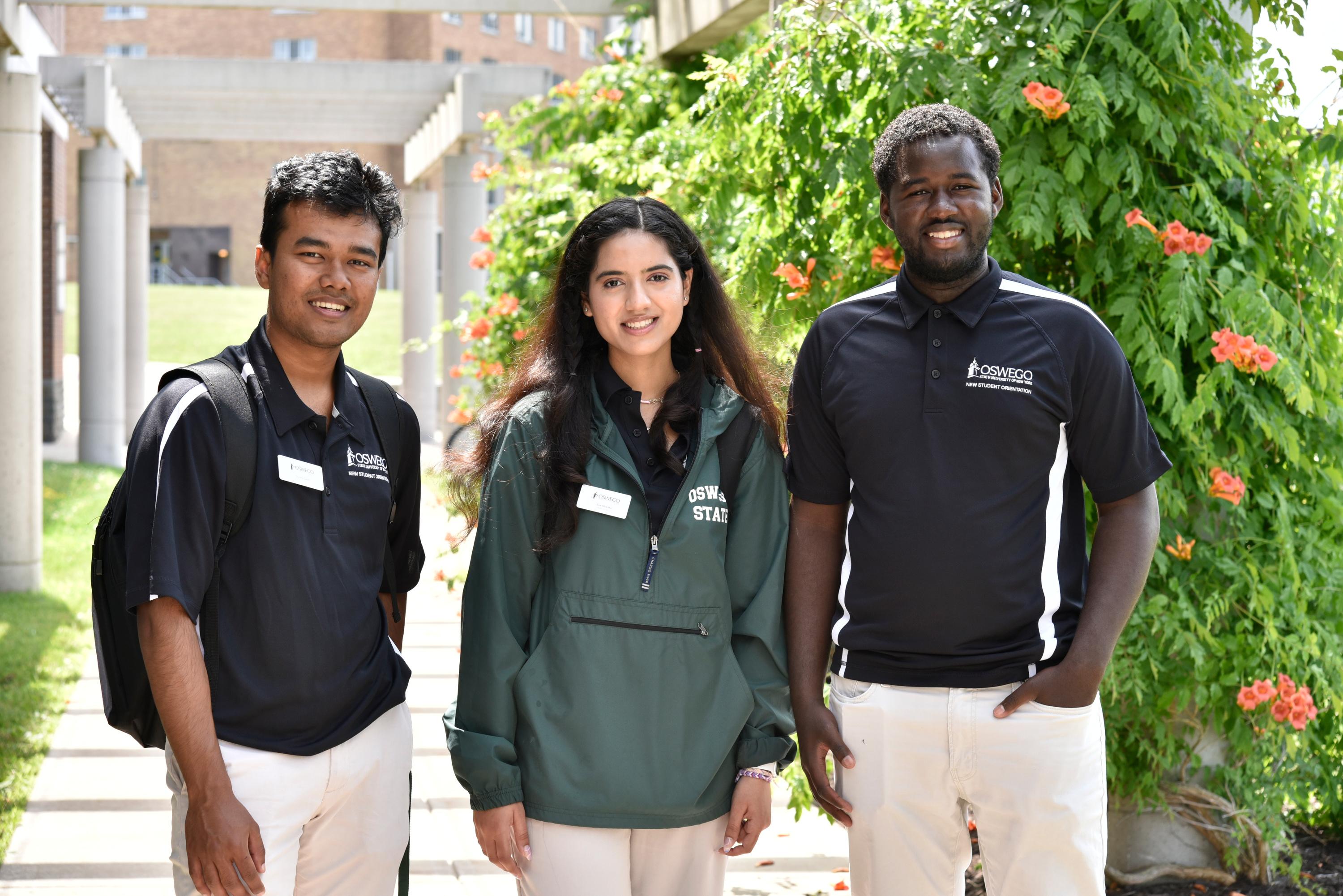SUNY Oswego President Deborah F. Stanley officially announced on Aug. 18, at the college’s formal opening of the fall 2021 semester, the establishment of the SUNY Oswego Institute for Equity, Diversity, Inclusion, and Transformative Practice (Institute).
“The Institute will serve as the nexus of activity related to SUNY Oswego’s efforts to stand together to root out racism and enact positive change for our community,” said President Deborah F. Stanley. “It will provide a powerful platform upon which to build on our successes and will serve to continue to prioritize the expansion of our ongoing anti-oppression work centered on creating and maintaining an inclusive, equitable community of students and scholars where all stakeholders thrive and experience belonging.”
The equity, diversity, inclusion, and transformative practices of the Institute are centrally connected to and motivated by SUNY Oswego’s strategic plan (Tomorrow Plan). As such, the Institute will be a resource for the entire campus community to engage in activities that will increase student success, partnerships, and academic and creative excellence as we continue to build an inclusive community and sustainable institution.
At the core of the Institute is its mission to foster critical self-awareness, understanding of the identities and experiences of all community members, investigation of structural inequality, and advocacy for transformative change. Activities of the Institute will include training and programming sessions on topics including, but not limited to, social justice, equality and equity, cultural competence, civil discourse, cultural humility, implicit bias, micro/macroaggressions, conflict de-escalation, intergroup dialogue facilitation, inclusive pedagogy, inclusive curricula, nonviolent communication, and restorative justice. “These transformative activities will positively impact individuals, the SUNY Oswego campus, and the greater community in ways that will enhance our world now and well into the future,” said Stanley.
The Institute will work collaboratively with:
“The Institute will serve as the nexus of activity related to SUNY Oswego’s efforts to stand together to root out racism and enact positive change for our community,” said President Deborah F. Stanley. “It will provide a powerful platform upon which to build on our successes and will serve to continue to prioritize the expansion of our ongoing anti-oppression work centered on creating and maintaining an inclusive, equitable community of students and scholars where all stakeholders thrive and experience belonging.”
The equity, diversity, inclusion, and transformative practices of the Institute are centrally connected to and motivated by SUNY Oswego’s strategic plan (Tomorrow Plan). As such, the Institute will be a resource for the entire campus community to engage in activities that will increase student success, partnerships, and academic and creative excellence as we continue to build an inclusive community and sustainable institution.
At the core of the Institute is its mission to foster critical self-awareness, understanding of the identities and experiences of all community members, investigation of structural inequality, and advocacy for transformative change. Activities of the Institute will include training and programming sessions on topics including, but not limited to, social justice, equality and equity, cultural competence, civil discourse, cultural humility, implicit bias, micro/macroaggressions, conflict de-escalation, intergroup dialogue facilitation, inclusive pedagogy, inclusive curricula, nonviolent communication, and restorative justice. “These transformative activities will positively impact individuals, the SUNY Oswego campus, and the greater community in ways that will enhance our world now and well into the future,” said Stanley.
The Institute will work collaboratively with:
- Students to create and offer resources, programs, events, training sessions, and leadership opportunities;
- Administrators, faculty, staff, employees, institutional Diversity Equity and Inclusion Committees, and the Center for Excellence in Learning and Teaching to expand resources, programs, events, training sessions, best practices colloquia, and other professional development opportunities on topics related to equity, diversity, inclusion, and transformative practices; and
- Institutional partners and stakeholders in Oswego, Syracuse, and surrounding communities to expand resources, training, and programs on topics related to equity, diversity, inclusion, and transformative practices in the community.
According to SUNY Oswego’s Chief Diversity and Inclusion Officer Dr. Rodmon King–who will initially serve as director of the institute and oversee a staff of five employees and several student interns–and Dr. Mary Toale, the college’s Affirmative Action Officer, the Institute will be a vital resource for our community partners to improve our collective communities through engagement with transformative practices and expand the vital shared work within and across our communities.
The Institute will also be a place where the SUNY Oswego community can engage in addressing the Grand Challenges of Race, Racism, and Social Justice and propel the community forward. Beginning this fall and for the next three consecutive academic years, the Grand Challenges effort will give SUNY Oswego students, faculty and staff – across all disciplines, departments and divisions – a unique opportunity to deeply engage with multi-dimensional issues of the social construction of racial identities, complex systems of oppression and privilege, and societal transformation.
“In building upon our community’s collective work and successes, the SUNY Oswego Institute for Equity, Diversity, Inclusion, and Transformative Practice will help to drive our community forward and further demonstrate our relevance and our value for our students and the world,” stressed President Stanley. “SUNY Oswego will live its educational mission to the fullest, and with deep commitment and understanding, we will be unwavering in pursuing justice, equality and peace. We will not rest … as much work remains.”




